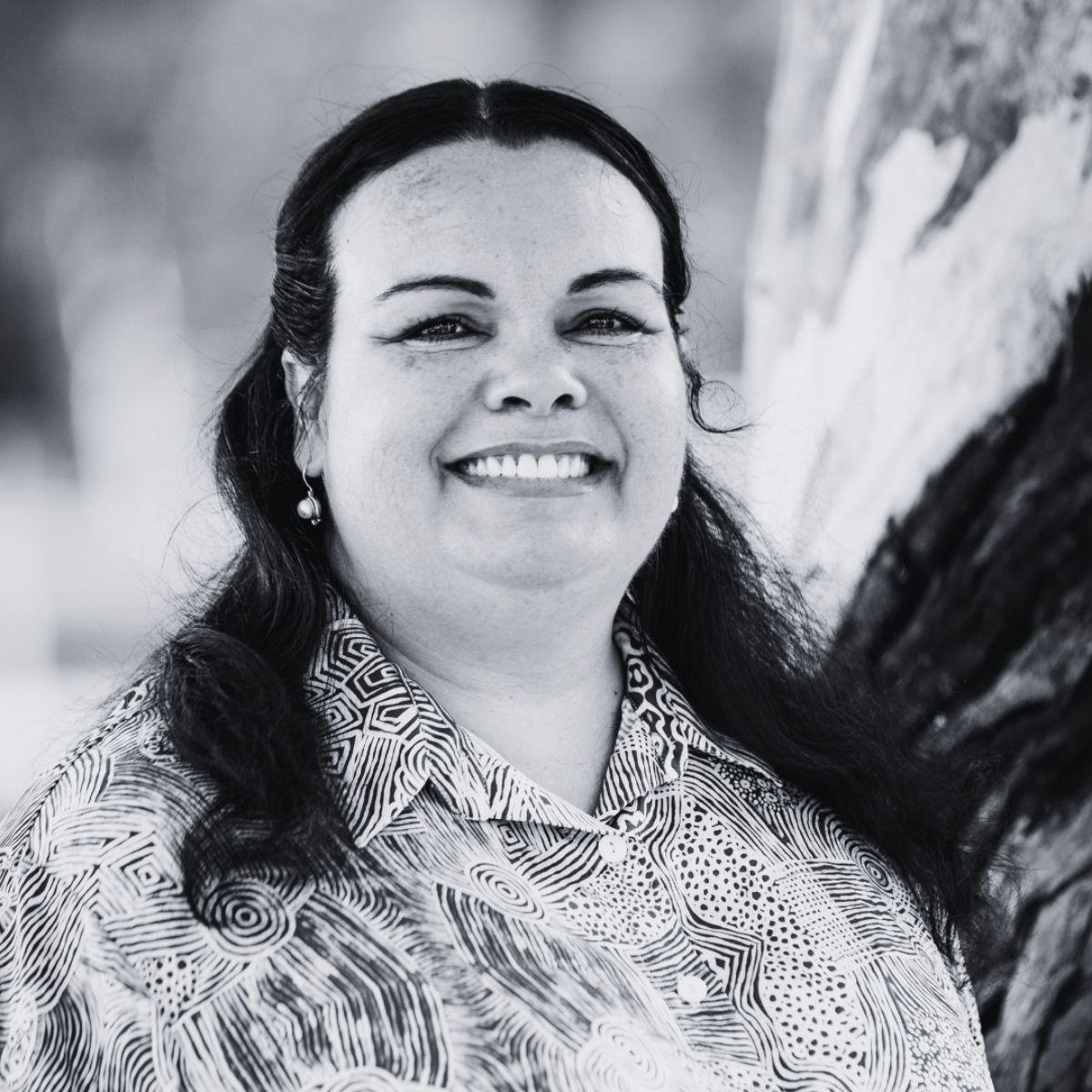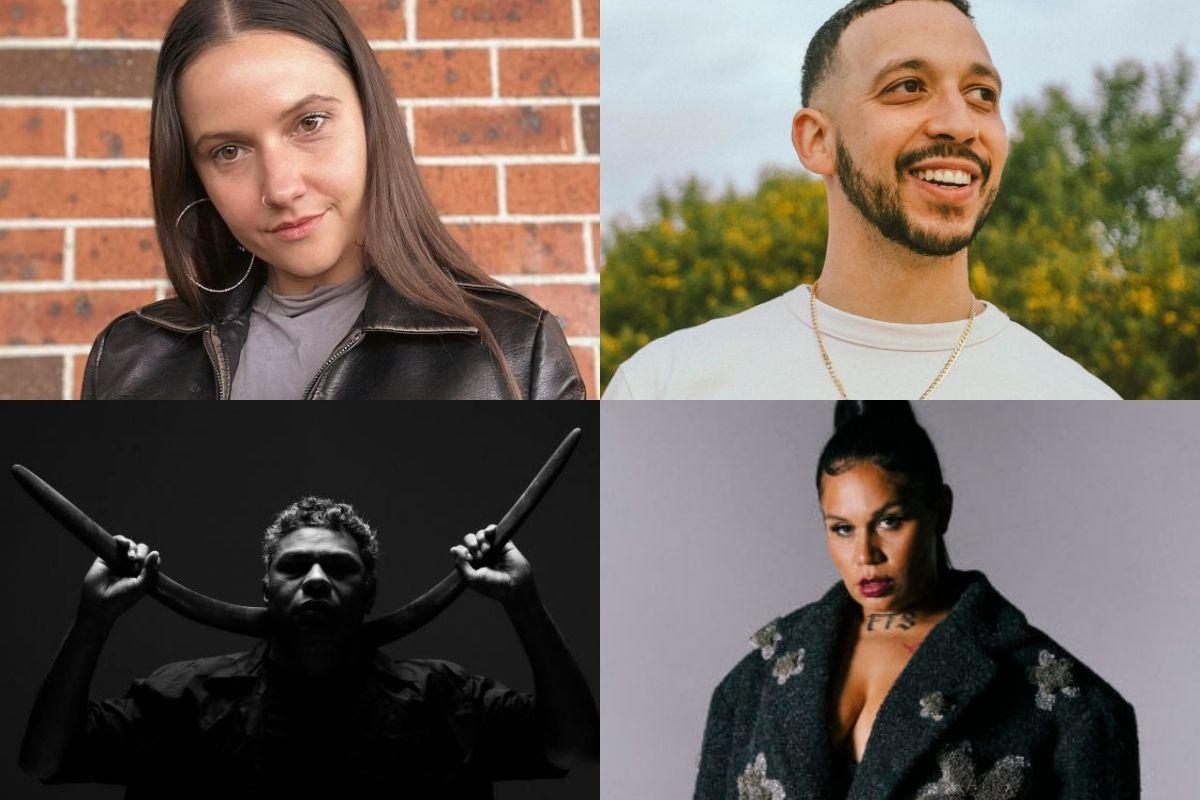When BIGSOUND 2025 kicks off in Brisbane this September, one of the most important conversations will be led by First Nations artists themselves.
Presented by Support Act under the Yarning Strong banner, the panel Pass The Mic, Not The Trauma: Navigating Parenthood In The Industry will explore what it means to raise a family while building a music career – and how cultural connection, community, and storytelling can be tools for both resilience and legacy.
For Catherine Satour, Support Act's First Nations Program Manager, the discussion is long overdue. "This conversation really started informally at last year's BIGSOUND," she explains.
"So many First Nations artists are breaking through right now, and a lot of them are parents. It felt important to give space to talk about what it's like juggling music careers and family life when your profile is starting to rise."
The panel will feature powerhouse artists including Flewnt, Kelly Hellmrich (Bad Apples Music), BARKAA, and Fred Leone – all musicians who also navigate the realities of raising children.
Catherine says the strength of the session lies in those lived experiences. "Your kids join your life. If you're a musician, they're right there with you. They're side of stage with headphones on, they're on the road at festivals, they're seeing firsthand what ambition and creativity look like. That's powerful for the next generation."
Parenthood in music isn't new, but for First Nations artists, it carries unique cultural weight. Satour points out that weaving language, cultural practice, and storytelling into contemporary music doesn't just strengthen artists; it strengthens entire communities.
"When someone like Fred Leone or BARKAA shares their language and culture on a national stage, it makes their communities so proud. It strengthens people back home. It's not only about their kids watching – it's about the whole community seeing themselves represented," she says.
That intergenerational storytelling is central to Yarning Strong's ethos. Rather than focusing solely on the struggles of parenthood in a tough industry, the panel will highlight how cultural connection and family bonds become sources of resilience. It's about "breaking cycles and building legacies grounded in strength, not struggle," Satour adds.

Catherine Satour
Yarning Strong is a First Nations–led initiative under Support Act, designed to create spaces for mob to connect, share, and be supported on their own terms. "What makes it different from traditional support models is that it's First Nations led, produced, and delivered," Satour explains. "These are our own stories, told in the right way, in collaboration with our artists and communities."
At BIGSOUND, Yarning Strong will also have a presence beyond the panel. Each day between 11am and 2pm, Support Act staff will host an information desk where First Nations music workers can drop by, have a yarn, and learn about the services available to them.
Those services range from crisis relief to educational resources and mental health support. A cornerstone of that support is the First Nations Support Line (1800 959 500), which connects music workers directly to a First Nations staff member for confidential help with stress, anxiety, or crisis.
"It's about being able to talk through things and de-escalate with someone who understands," Satour says. When asked what gaps these programmes aim to fill, Satour pushes back on the idea.
"I wouldn't say it’s about gaps. It's about visibility, representation, and support. Our aim is to keep First Nations people working in the music industry," she explains. For many, that means having access to services that allow them to pick themselves back up during tough times and continue their careers.
Success isn't measured by statistics alone, but by relationships built in communities across the country. "Every time we're invited into a new regional or remote community, every time someone tells us they could stay in music because of our help – that's success," Satour says.
Despite progress, Satour acknowledges the industry still has work to do. Discrimination remains an issue, and access to resources in remote areas is inconsistent. She also highlights the need for greater cultural competency across the wider industry.
"There's a real need for non-First Nations spaces to undergo cultural competency training – to know how to engage with and support Aboriginal and Torres Strait Islander people," she says. Looking ahead, she wants to see more acceptance, visibility, and genuine seats at decision-making tables. "It's not just about being onstage or on a festival line-up.
"It's about being part of the decision-making too, being acknowledged for decades of commitment and contribution, not just ticked off as diversity."
Ultimately, Satour's vision for the future of the music industry is simple but urgent: safe spaces, respect, and recognition. "We need broader understanding and respect for First Nations contributions to the music industry, and safe spaces for mob to create and deliver their work. That's what a healthier, more supportive industry looks like," she says.
Yarning Strong: Pass The Mic, Not The Trauma: Navigating Parenthood In The Industry takes place at BIGSOUND at The Sound Garden (Brisbane) on 2 September (3.30-4.30pm).

